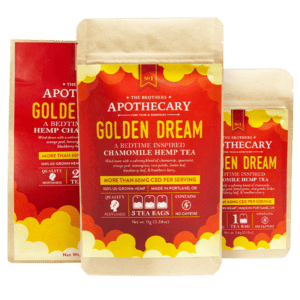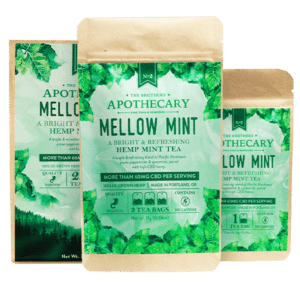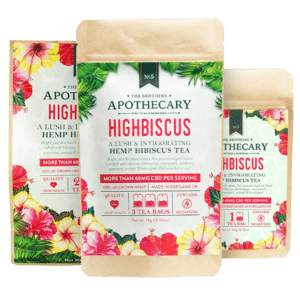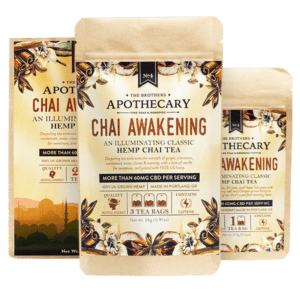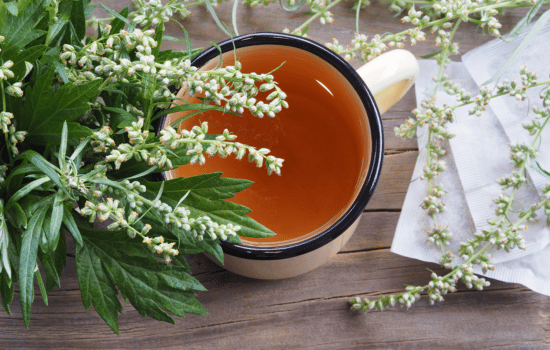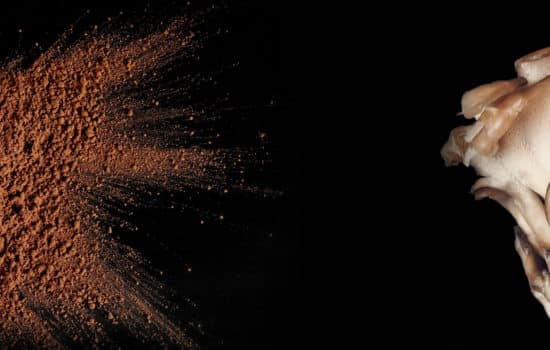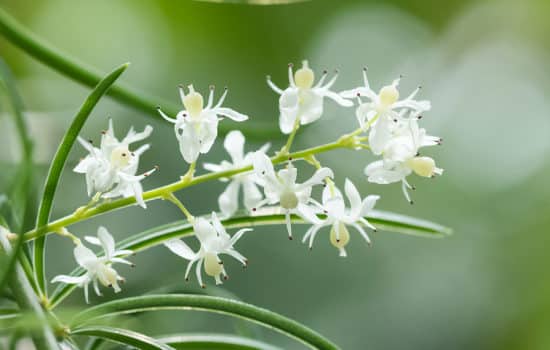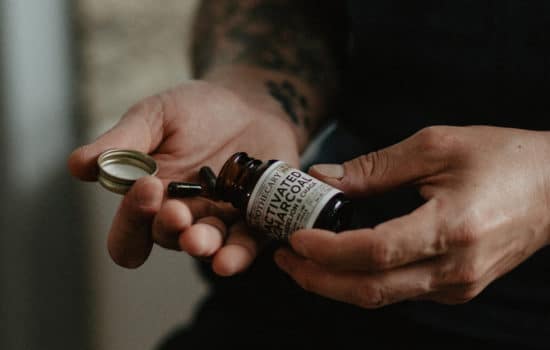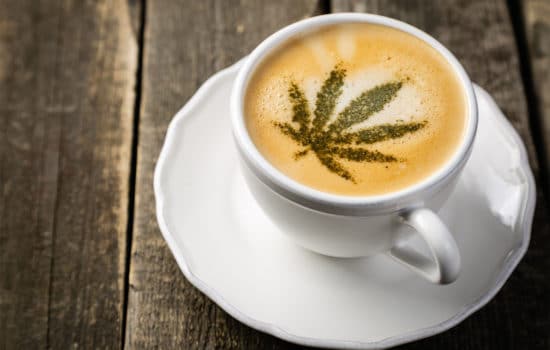If you’re a fellow mushroom lover, you may already be familiar with some of the wellness benefits of our common fungi friends. But here’s a wellness-supporting mushroom you’re unlikely to encounter at your local grocery store or in your kitchen collection: chaga.
While the somewhat unappealing look and bitter taste of this mushroom make it an unpopular choice for cooking, that doesn’t mean there isn’t a wealth of wellness benefits in this mushroom’s dirt-colored exterior.
And lucky for us, there is an easy and delightful way to reap the benefits of this underrated superfood: chaga tea!
Read on to learn about the chaga mushroom’s many benefits and how to craft the perfect brew to kickstart your day or wind down for the night with The Brothers Apothecary.
What Are Chaga Mushrooms?
Inonotus obliquus, or wild chaga, are slow-growing mushrooms that grow on birch trees. When spotted in the woods, this fungus may look like a clump of burnt charcoal or birch gnarl, but you can identify the blackish brown mass as chaga by the soft and distinct deep orange color of the internal core.
With nicknames such as the black mass, clinker polypore, birch canker polypore, cinder conk and the sterile conk trunk rot, wild chaga may not sound too appetizing. But chaga is a nutrient-rich adaptogenic fungus with an earthy flavor that is perfect for turning into a strong and immune-supporting tea.
Chaga tea has been used in Eastern Europe and Siberia for centuries due to its adaptogenic nature. An adaptogen is an herb, fungi, or compound that can support the body in adapting to the environment and responding to stressors.
Adaptogenic mushrooms such as chaga and reishi don’t have any psychoactive effect on the brain like magic mushrooms do. The antioxidants and mineral nutrients in chaga can work synergistically with the body’s systems to support overall wellness.
Where Do Chaga Mushrooms Grow?
Chaga mushrooms are most commonly found in Northern regions with cold climates and plenty of birch trees. Northern Europe, Russia, Korea, Siberia, Northern Canada, and Alaska.
In the US, chaga lives in parts of the Northeast and the Pacific Northwest.
Can You Eat Chaga Mushrooms?
While chaga mushrooms are edible, this fungus has a somewhat bitter taste reminiscent of burnt espresso that doesn’t quite do the trick for most people’s taste buds. That’s why it has traditionally been ground or grated into a fine powder for tea.
And while tea is a wonderful way to enjoy chaga, it certainly isn’t the only way. You can incorporate chaga powder into coffee, soups, smoothies, or other blended drinks.
Here at The Brothers Apothecary, chaga is one of the 10 synergetic mushrooms in our energy-boosting Magickal Mushroom Hemp Protein Powder and our super comforting Chocodelic Trip CBD Hot Cocoa.
You can also enjoy the benefits of chaga in the form of a tasteless chaga mushroom extract supplement or capsule, such as our own Supreme Vitality or Charcoal + Chaga Cleanse capsules.
How Do You Make Chaga Tea?
Making chaga mushroom tea at home is a quick and easy way to incorporate this superfood into your diet. You’ll only need dried chaga mushroom powder, hot water, a tea infuser or strainer, and your favorite sweetener if desired.
Here is our go-to recipe:
- Add one to three teaspoons of ground chaga powder to your tea steeper
- Boil about 8 to 12 oz of water
- Pour the boiled water directly over your infuser
- Steep for 10 to 15 minutes, then remove your tea infuser or strain
- Add your sweetener and enjoy!
Using chaga powder to make the tea can release its medicinal properties, as the fiber, vitamins, minerals, and antioxidants enter the body and begin their adaptogenic magic.
We love mixing a bit of maple syrup, honey, and cinnamon into our chaga tea for a slightly sweeter earthy flavor, but you can also use milk or sugar or enjoy it on its own!
Is Chaga Tea Good for You?
Chaga tea is believed to provide a number of health benefits ranging from supporting the immune system, supporting healthy blood pressure and heart health, and aiding in normal digestion.
Some healthy nutrients and minerals found in chaga include: B-complex vitamins, vitamin D, potassium, amino acids (the building blocks our bodies require to form protein), fiber, iron, zinc, magnesium, calcium, and bioactive compounds known as polysaccharides, such as beta-D-glucan.
Immune Function
One of the most revered benefits of chaga is its ability to support the immune system. Both the vitamin D and beta-D glucans content found within chaga are believed to help regulate the immune system.
Chaga may also support the immune system by helping to soothe the body. Research suggests that chaga compounds such as betulinic acid, inotodiol, and ergosterol peroxide are to thank.
Antioxidant-Rich
Along with supporting your immune system, many of the active compounds found in chaga also contain impressive antioxidant properties.
Antioxidants are molecules that can protect cells from the harmful effects of free radicals. One of the main risks associated with free radicals is oxidative stress, which can occur when free radicals oxidize cells within the body. The good news is that chaga has an abundance of antioxidant compounds.
May Support Heart Health
Chaga tea may help support healthy heart function in several ways. Along with helping to combat the effects of oxidative stress on the heart, evidence from animal studies reveal chaga’s polysaccharides are thought to help support normal blood sugar levels, too.
How Does Chaga Tea Taste?
Chaga mushrooms have a warm, earthy flavor and a slight sweetness from the naturally occurring vanillin it contains—the same as you’d find in vanilla beans. But if nutty and earthy doesn’t sound quite like your cup of tea, not to worry! Chaga tea pairs well with sweeteners and spices such as maple syrup, honey, ginger, cinnamon, or turmeric, so you can spruce your cup up to fit your taste.
Is Chaga Tea Safe To Drink?
While chaga mushroom tea is considered extremely safe in moderate doses for most, there are a few side effects and potential drug interactions to know.
Chaga tea may interact with blood thinner medications such as warfarin or clopidogrel, so you should generally not consume chaga if you have a blood disorder, take blood thinners, or have an upcoming surgery.
And because chaga can affect blood sugar levels and the immune system, you should speak with your doctor if you use insulin, have diabetes, or have an autoimmune disorder, to ensure chaga is safe for you.
It is also best to avoid chaga if you are pregnant or breastfeeding, as the potential effects have not yet been thoroughly researched.
As always, make sure you purchase your chaga powder from a reputable vendor. Here at The Brothers Apothecary, our mushrooms are cultivated locally in Oregon and undergo a rigorous quality control process.
Is Chaga Tea a Good Substitute for Coffee?
Many of us rely on a good ol’ cup (or two, or three) of coffee in the morning to wake us up or provide a much-needed energy boost throughout the day. However, we know there can be too much of a good thing.
Some people may be more sensitive to caffeine than others, and too much caffeine for anyone can lead to nervousness, jitters, insomnia, or increased heart rate. Whether you are sensitive to caffeine, trying to kick a caffeine dependency, or want to try something different, you may be interested in replacing your coffee with something milder.
Luckily, chaga tea can serve as a great coffee alternative. The polysaccharides in chaga can provide long-lasting feelings of energy by helping support healthy metabolic function. Chaga’s adaptogenic properties can also help you better maintain a calm mood.
And without caffeine, you can enjoy chaga tea in moderation (we recommend no more than a cup or two a day) without the jitters.
Wrapping Up
The adaptogenic chaga mushrooms rank among our favorite fungi here at the Apothecary, with the ability to support immune health, maintain healthy blood pressure and cholesterol, and provide a daily dose of stress-free energy.
These wellness-supporting shrooms pair amazingly well with our organic CBD to help keep your mind and body balanced and feeling their best. You can find our mushroom collection, herbal and CBD teas, and products at The Brothers Apothecary shop!
Sources:
Polysaccharides – an overview | ScienceDirect Topics
Antioxidant Activity of β-Glucan | PMC
Antioxidant effect of Inonotus obliquus | Journal of Ethnopharmacology
Break the Cycle of Stress and Distraction by Using Your Emotional Intelligence | HBR
Jesse Richardson is the co-founder of The Brothers Apothecary. He's an avid tea drinker and the primary creator behind The Brothers' products. An undergraduate of UCLA for Political Science, Jesse currently studies Medicinal Plants at Cornell University and The International School of Herbal Arts & Sciences.



